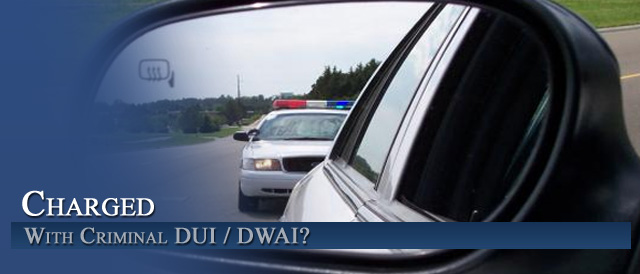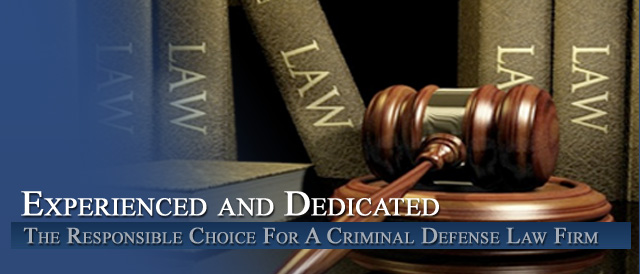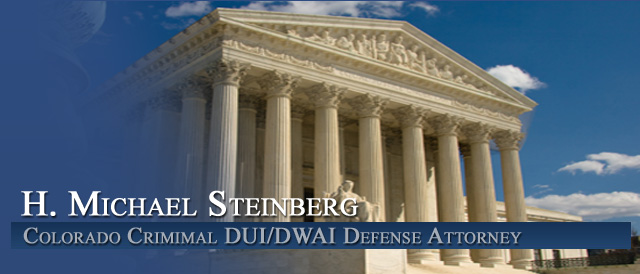




2017 Colorado Case – Proves Once Again – Never Talk To The Police!
By H. Michael Steinberg Colorado DUI Criminal Defense Lawyer – Attorney
2017 Colorado Case – Proves Once Again – Never Talk To The Police! – While I have written articles on interacting with the police many times, it bears repeating that the most dangerous thing you can do is talk to law enforcement. Understanding your rights in this complex area is important.
Recently a new Colorado case, which reversed a lower Courts suppression of alleged illegally seized evidence, once again is instructive on a person should NEVER – EVER casually converse and cooperate with a police investigation.
Some Basic Colorado And United States Constitutional Law – The Fourth Amendment
The Fourth Amendment to the United States Constitution protects persons against unreasonable searches and seizures. U.S. Const. amends. IV, XIV.
It is important to understand that the Fourth Amendment does NOT prohibit all contact between police and citizens. Instead it prohibits “arbitrary and oppressive interference . . . with the privacy and personal security of individuals.”
A violation of the Fourth Amendment – in connection with contacting the person on the street – will most often turn on facts that demonstrate that the police officer, by means of physical force or show of authority, has restrained your liberty to the point that a Court would consider the contact a ‘seizure’ of your person or your effects.
When there is a ‘seizure’ of your person – clearly defined Constitutional protections are triggered and law enforcement is required to justify that seizure through evidence establishing probable cause if the seizure is an arrest – or by a evidence establishing reasonable articulable suspicion of criminal activity if the seizure is an investigatory stop.
Here’s the key point:
….when the police use “non-coercive tactics” to elicit the cooperation of a citizen, the encounter is consensual so long as a reasonable person in that citizen’s position would feel free to leave.
The Key Test Was Your Encounter With The Police “Consensual” Or Unconstitutional?
If a Judge finds that a “reasonable person” in an “encounter” with the police would feel free to leave, … there has been no intrusion on liberty or privacy. But, it is important to quickly note that a consensual encounter:
“…can be transformed into a seizure within the meaning of the Fourth Amendment if, in view of all the surrounding circumstances, a reasonable person would have believed that he was not free to leave or decline the officer’s requests.”
Colorado courts apply a “totality of the circumstances” test to determine whether the police exercised force or authority to effect a stop, or whether the police merely sought the voluntary cooperation of a citizen through a consensual encounter.
A Closer Look At Police – Citizen Encounters In Colorado
There are fundamentally three ways to have contact with the police.
First: the police have enough evidence (requires probable cause) to arrest you. . An arrest occurs when an police officer physically restrains you or otherwise uses his authority to make it clear that you are not free to leave because you will be detained.
Second: the police have enough evidence to conduct an investigatory stop (requires reasonable suspicion). Investigatory stops occur where a police officer stops you to investigate whether or not you committed a crime and has at least a reasonable and articulable suspicion you may have committed a crime.
Third: the police have no evidence that a crime has been committed and rely on your ignorance of the law to develop this evidence during a “consensual encounter” during which they ask – and you answer – their questions.
A Colorado “Consensual Encounter” With The Police
Consensual encounters are the most dangerous of police interactions because all of us think we are smarter than the police. We know “where this is going” We believe the police are our friends and are not out to “get us.”
Nothing could be further from the truth.
The casual nature of a consensual encounter with the police often leads to the target of the investigation – you – dropping your guard. While the contact may seem “minimal” and may even seem harmless, the goal of the police isto develop probable cause or reasonable suspicion of a crime.
A Court must find, under the totality of the circumstances, that a reasonable person in your position felt they had the right to leave at any time and the right to refuse any questions posed by the officers.
Remember- to conduct a consensual encounter, the police do not need probable cause or reasonable suspicion that crime is afoot to initiate contact, they just need your cooperation.
Understanding Your Right To “Walk Away”
In theory, walking away from a cop who is questioning you is difficult – and the police know it. People do not understand that they can leave any time they wish when a police officer (or several police officers) casually approach them and begin asking questions.
The police know that if they make a mistake and conduct an investigatory stop without reasonable suspicion, any incriminating evidence they seize will be thrown out of court. Therefore they will go to a kind of “plan b” and claim that the interaction was a casual and therefore consensual encounter.
Courts are called upon to decide whether an encounter with the police is casual or compelling. They do this by reviewing the behavior of the police in the given fact pattern.
Circumstances such as:
“the threatening presence of several officers, the display of a weapon by an officer, some physical touching of the person of the citizen, or the use of language or tone of voice indicating that compliance with the officer’s request might be compelled” can indicate a seizure as opposed to a consensual encounter.”
If the Court finds that there were no circumstances:
“…indicating that a reasonable person would be so intimidated by the police contact that he would not feel free to leave, then otherwise inoffensive contact between a person and the police cannot, as a matter of law, amount to a seizure.”
Colorado Goes The Extra Distance To Advise You Of Your Rights – Section 16-3-310 CRS
Colorado, unlike many other states, actually requires, as a matter of law, that police officers give individuals seeking to conduct a search of a person or a vehicle an oral advisement of their Fourth Amendment rights.
Here is a reprint of that law:
Colorado Revised Statutes – § 16-3-310 Oral advisement and consent prior to search of a vehicle or a person during a police contact
(1)(a) Prior to conducting a consensual search of a person who is not under arrest, the person’s effects, or a vehicle, a peace officer shall comply with paragraph (b) of this subsection (1).
(b) A peace officer may conduct a consensual search only after articulating the following factors to, and subsequently receiving consent from, the person subject to the search or the person with the apparent or actual authority to provide permission to search the vehicle or effects.
The factors are:
(I) The person is being asked to voluntarily consent to a search; and
(II) The person has the right to refuse the request to search.
(c) After providing the advisement required in paragraph (b) of this subsection (1), a peace officer may conduct the requested search only if the person subject to the search voluntarily provides verbal or written consent. Other evidence of knowing and voluntary consent may be acceptable, if the person is unable to provide written or verbal consent.
(2) A peace officer providing the advisement required pursuant to subsection (1) of this section need not provide a specific recitation of the advisement; substantial compliance with the substance of the factors is sufficient to comply with the requirement.
(3) If a defendant moves to suppress any evidence obtained in the course of the search, the court shall consider the failure to comply with the requirements of this section as a factor in determining the voluntariness of the consent.
(4) This section shall not apply to a search conducted pursuant to section 16-3-103, a valid search incident to or subsequent to a lawful arrest, or a search for which there is a legal basis other than voluntary consent. This shall include, but not be limited to, a search in a correctional facility or on correctional facility property, a detention facility, county detention facility, custody facility, juvenile correctional facility or any mental health institute or mental health facility operated by or under a contract with the department of human services, a community corrections facility, or a jail or a search of a person subject to probation or parole by a community supervision or parole officer when the person has consented to search as a term and condition of any probation or parole.
The 2017 Case of People v. Shoen: Why You Should Never Cooperate With A Police Investigation – Fourth Amendment – Consensual Encounters.
Remember The Test For A Consensual Encounter
“The test for determining if the encounter is a consensual one is whether a reasonable person under the circumstances would believe he or she was free to leave and/or to disregard the official’s request for information.”
In the Shoen case, the Colorado Supreme Court held, (when they came upon Shoen near some recently burgled storage units), that the police officers’ encounter with Shoen was consensual. Shoen admitted to having methamphetamine in his truck.
The following factors were weighed under the totality of the circumstances in favor of the police:
- Before the officers contacted Shoen, they parked their patrol car several storage units behind Shoen’s truck.
- They did not use the police car’s emergency lights or siren, and they left the exit paths in the storage complex open.
- They explained why they were there and used a conversational tone throughout the encounter.
- Neither of the officers touched Shoen nor directed him where to stand or sit.
- The officers did not display any weapons or threaten Shoen at any point in their conversation.
- They asked Shoen whether they could speak with him and notified him at the beginning of their
- conversation that he was not in any trouble;
- Shoen agreed to talk to them.
- The officers never instructed Shoen to remain in the area or restrained him.
- They told him that he should call someone to come and pick him up so he could leave.
- They asked Shoen’s permission to search the bed of his truck and told him that he did not have to let them look.
- The officers did not attempt to intimidate Shoen into remaining at the storage unit – they recommended that he call someone to pick him up so he could leave.
When A Person Is “Free To Leave” And Is “Comfortable” With A Police Encounter
The Colorado Supreme Court in the Shoen case made clear that based on the facts of that case Shoen not only agreed to speak with the officers but he “appeared comfortable throughout the encounter” as he “willingly answered the officers’ questions and allowed them to look in his truck bed.”
According to the decision, Shoen’s encounter with the police was consensual “because the defendant’s liberty was not restrained and his voluntary cooperation was elicited through non-coercive questioning.” Therefore under “the totality of the circumstances,“ a reasonable person in Shoen’s position would have known that he was free to leave or decline the officers’ requests.
My recommendation – find “the stomach” when you have an encounter with the police – to ensure it is NOT consensual. Make it clear to the police that you want a lawyer (lawyer up) and that you are NOT COMFORTABLE with the contact and will not answer their questions.
If you choose not to to stay and talk with the police officers, without the police demonstrating that have evidence of a crime and therefore detaining or arresting you – then your encounter with the police can never be “consensual.”
2017 Colorado Case – Proves Once Again – Never Talk To The Police!
If you found any of the information I have provided on this web page article helpful please click my Plus+1 or the Share buttons for Twitter and Facebook below so that others may also find it.
The reader is admonished that Colorado criminal law, like criminal law in every state and at the Federal level, changes constantly. The article appearing above was accurate at the time it was drafted but it cannot account for changes occurring after it was uploaded.
If, after reading this article, you have questions about your case and would like to consider retaining our law firm, we invite you to contact us at the Steinberg Colorado Criminal Defense Law Firm – 303-627-7777.
Never stop fighting – never stop believing in yourself and your right to due process of law. You will not be alone in court, H. Michael will be at your side every step of the way – advocating for justice and the best possible result in your case. H. Michael Steinberg is passionate about criminal defense. His extensive knowledge and experience of Colorado Criminal Law gives him the edge you need to properly handle your case

ABOUT THE AUTHOR: H. Michael Steinberg – Email The Author at:
A Denver Colorado Criminal Defense Lawyer – or call his office at 303-627-7777 during business hours – or call his cell if you cannot wait and need his immediate assistance – please call 720-220-2277.
“A good criminal defense lawyer is someone who devotes themselves to their client’s case from beginning to end, always realizing that this case is the most important thing in that client’s life.”
You should be careful to make a responsible choice in selecting a Colorado Criminal Defense Lawyer. We encourage you to “vet” our firm. Over the last 40 plus years – by focusing ONLY on Colorado criminal law – H. Michael has had the necessary time to commit to the task of constantly updating himself on nearly every area of criminal law, to include Colorado criminal law and procedure and trial and courtroom practice.
Putting more than 40 years of Colorado criminal defense experience to work for you.
H. Michael works hard to get his clients the best possible results in and out of the courtroom. He has written, and continues to write, extensively on Colorado criminal law and he hopes this article helps you in some small way – 2017 Colorado Case – Proves Once Again – Never Talk To The Police!

Other Articles of Interest:
- Colorado Mental Health and Substance Abuse Resources In DUI Cases
- Colorado Criminal Law – Q and A – Colorado Texting And Driving Law – C.R.S. 42-4-239 – UPDATED 2017
- Colorado DUI Lawyer Answers The Question – What Should I Do If I Am Stopped On Suspicion Of DUI – Refusing The Chemical Test
- Weaving Within My Lane In Colorado – 42-4-1007- Can They Stop Me For Suspected DUI?
- Colorado Criminal Law – Know Your Rights – Remain Silent – Remain Silent – Remain Silent












